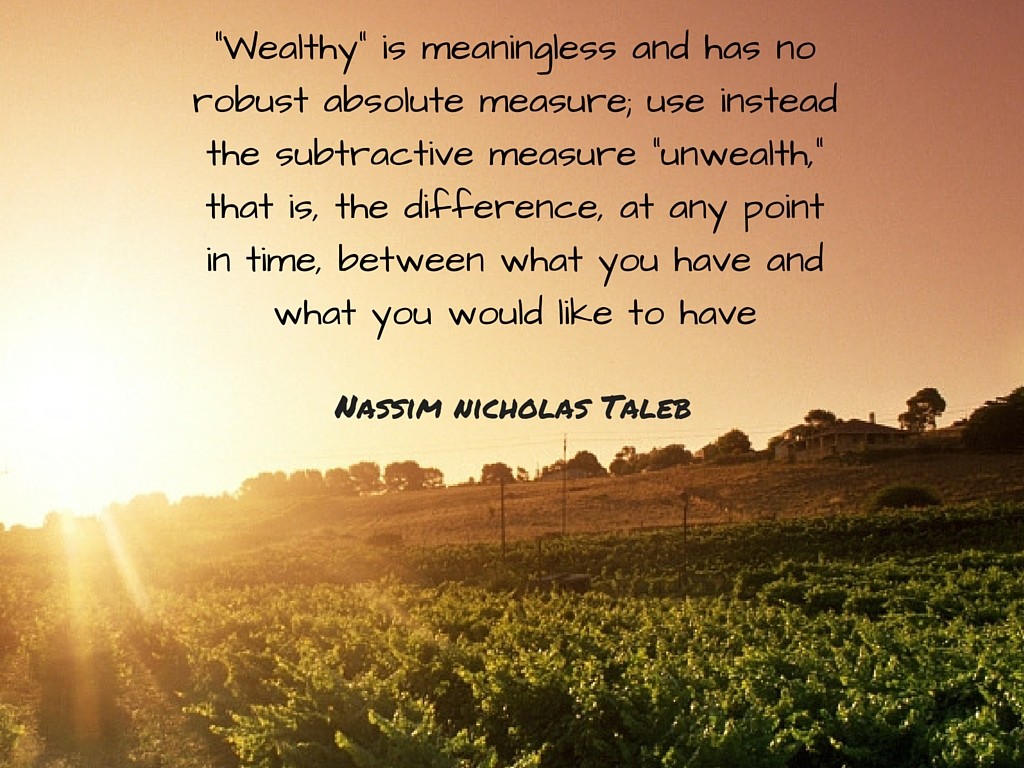Unfortunately, that’s what our perception of most things boil down to. We have a very weak compass for evaluating absolutes. That applies to money, wealth, prices, jobs, nearly everything else around us.
Let’s imagine a situation:
- You open the mail one Monday morning, and discover (to your immense pleasure!) that you have won a $1 million prize. Complete windfall. You are ecstatic. Pause and imagine what that feels like.
- The next day, with a spring in your step, you walk out of your house on Tuesday morning imagining all the things you would do with your new-found wealth. You meet your neighbour in the elevator and start talking about your windfall. The neighbour listens to you patiently but soon cuts you off and says, “Wow, what a coincidence. I also got a windfall prize in the mail yesterday. Oh, and it was for a $5 million prize”
The question is: How do you think you would be feeling after you received the $1 million windfall in Point 1 above? And how do you think you would be feeling after you heard about your neighbour’s windfall? The reality is that you are $1 million up in both cases. You ought to be ecstatic. But most people would be significantly affected by the second piece of information that you received on Tuesday.
That’s the reality of how we perceive windfalls, or evaluate new information. It’s wins and losses, relative to where we were before. And it’s relative position compared to others (other people who we think are relevant).
There are many other instances that point to the same factors. One obvious one is the interesting correlation that seems to exist between countries that are consistently ranked as the Happiest nations and those that have high suicide rates. (see International Business Times article http://www.ibtimes.com/happiest-countries-have-highest-suicide-rates-280921). It seems that unhappy people in generally happier countries may be more driven to take their own lives because they think of themselves as relatively worse off.
On a less morbid note, there is also quite a bit of research on the fact that an individual’s happiness could increase by staying in the company of people that are less attractive, rich and/or intelligent than them. It makes them feel relatively more attractive, rich and intelligent and could thus improve their sense of happiness. Better to be the richest guy in a poor neighbourhood than the poorest guy in a rich neighbourhood. Beggar Thy Neighbour.
